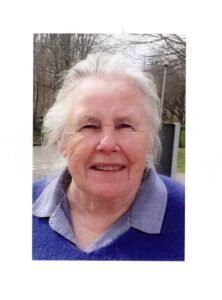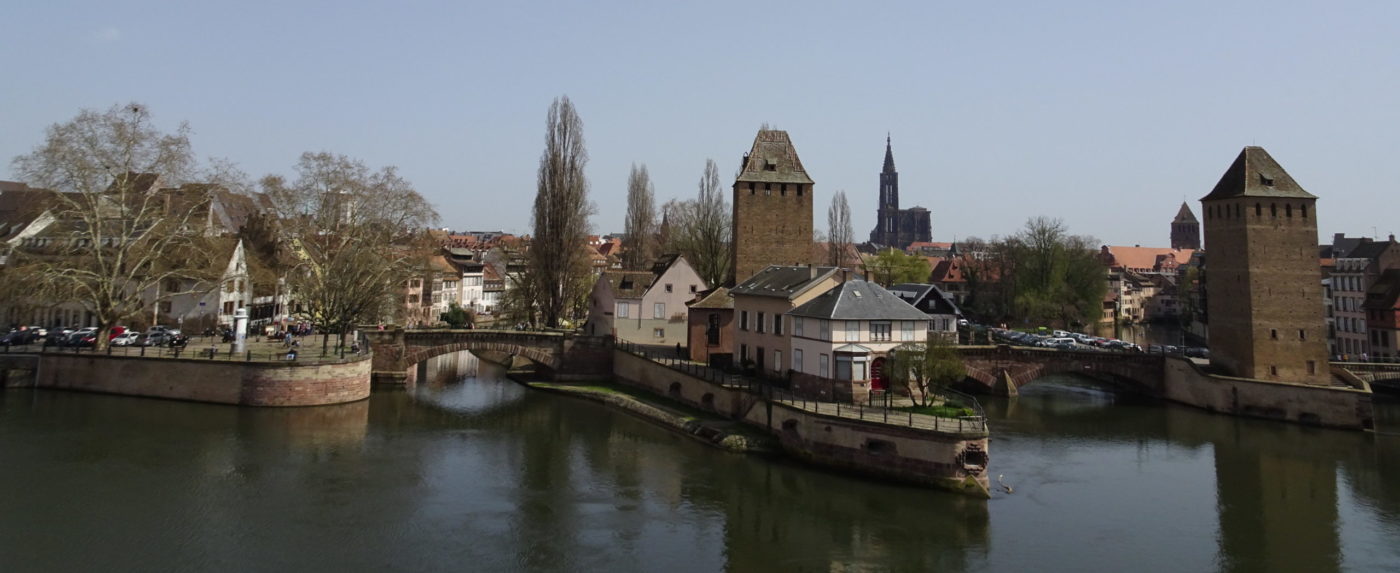 Diane Murray, who died after a short illness on 13th May, was for over 40 years a mainstay of the Anglican Chaplaincy in Strasbourg. She and her husband, the Rev. John Murray, made new chaplains to Strasbourg welcome and supported their ministry and the work of the Church in every way. For incoming Chaplains she found appropriate accommodation and furnished the houses and flats in cost-effective and creative ways. She served on successive Councils and was concerned particularly with the financial viability of the Chaplaincy, expecially after funding from the Church of England was no longer available. She and John had an open and welcoming house for all Chaplaincy members, but particularly for refugees and their families, and they supported many families in need, both in Strasbourg and in other countries. Very close to her heart was what started as the One World Group and then became ACAS, the Association Caritative Anglicane de Strasbourg. Making sure enough money went to support individuals and organisations in developing countries was a constant concern. But providing enough sandwiches, cake and fruit to feed hungry Council members was also high on her agenda.
Diane Murray, who died after a short illness on 13th May, was for over 40 years a mainstay of the Anglican Chaplaincy in Strasbourg. She and her husband, the Rev. John Murray, made new chaplains to Strasbourg welcome and supported their ministry and the work of the Church in every way. For incoming Chaplains she found appropriate accommodation and furnished the houses and flats in cost-effective and creative ways. She served on successive Councils and was concerned particularly with the financial viability of the Chaplaincy, expecially after funding from the Church of England was no longer available. She and John had an open and welcoming house for all Chaplaincy members, but particularly for refugees and their families, and they supported many families in need, both in Strasbourg and in other countries. Very close to her heart was what started as the One World Group and then became ACAS, the Association Caritative Anglicane de Strasbourg. Making sure enough money went to support individuals and organisations in developing countries was a constant concern. But providing enough sandwiches, cake and fruit to feed hungry Council members was also high on her agenda.
The Chaplain of St. Alban’s, Dr. Mark Barwick, writes:
“Diane was the kind of person you noticed, really for her force of character. She was a force to be reckoned with. And she had her opinions about things … Diane was very intelligent – and very curious and passionate about many things. And she brought that marvellous intellect to bear on matters of faith. For her, faith had to make sense. It had to be intellectually tenable to be worth living. She liked to debate. She could be impatient when people toss around religious platitudes, really not knowing what they’re talking about. And at the same time, she accepted and even admired those whose faith was simple, not simplistic, but simple, uncomplicated, livable, real. Because that was something she longed for in life, and to a large degree achieved. She brought a practical, inclusive and feminist critique to religion.”

